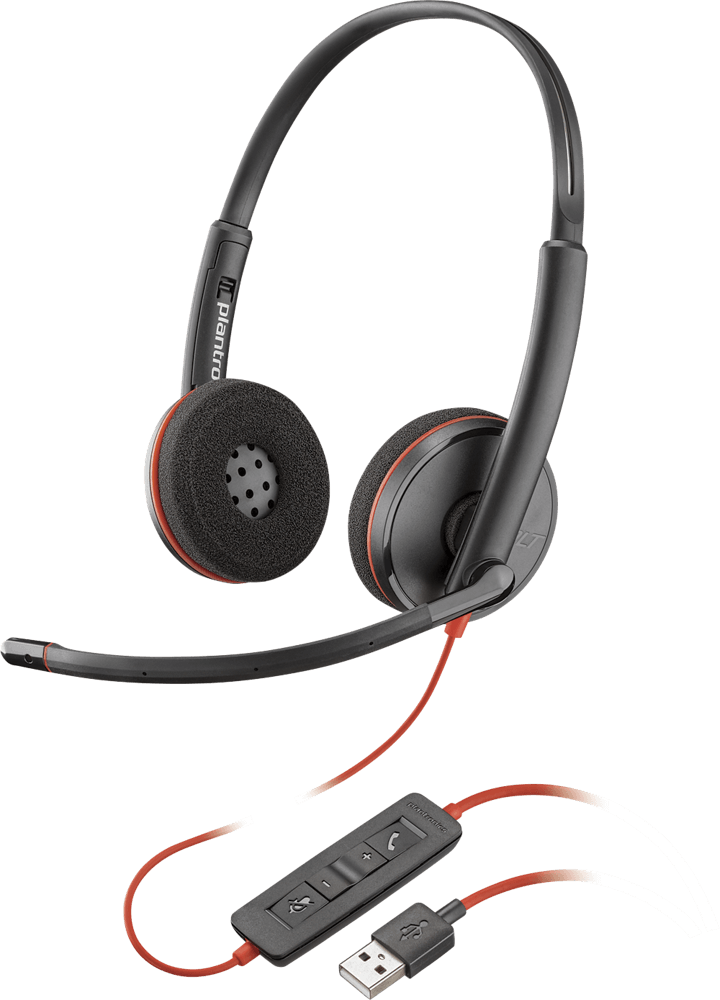Every day we are asked what the best VoIP phone systems are for for small business. And If you want to find out more about buying the best VoIP-friendly version of a PBX phone system you’re not alone. This buyer’s guide will give you everything you need to make an informed choice when it comes your time to buy.
It’s a good decision to make, not only because businesses have been taking advantage of VoIP for over 5 years now, but also because the NBN means that a VoIP phone system will be the only way forward for your business telco in the future. In the past, a business VoIP phone service was reserved for large companies that could afford dedicated, high quality internet connections, but the NBN means that businesses of all shapes and sizes will now have access to the quality internet required to successfully run VoIP services.
If you’ve been hearing about VoIP and you’re thinking about getting your business on board, this article will help you understand exactly what it is, how it works, and arm you with everything you need to make the best choice when purchasing a VoIP phone system for your business.
Below we will go through exactly what VoIP is, the pro’s and con’s of using it for businesses and discuss who should be using VoIP Phone Systems.
What Is VoIP?
VoIP stands for Voice over Internet Protocol, and is used to describe any phone call made using an internet connection, as opposed to traditional phone services. VoIP is becoming a larger part of our lives each day, and if you’ve ever made calls using Skype, FaceTime, or WhatsApp, then you’ve already used a VoIP service.
VoIP is the process of turning our analogue voice signals into digital data which can traverse the internet. Because using VoIP is faster and easier than traditional services, VoIP line rental and phone call rates are much more affordable.
How does VoIP work?
VoIP converts your voice into digital data, and that digital data has to be re-coded into voice signals at the other end of the call, and it does this using codecs which is short for encoder-decoder. Codecs compress the voice data so that it can be transmitted faster, and the call quality is better as a result.
The reason codecs are required is because VoIP uses digital signals, unlike traditional PSTN phone conversations that use analogue data. When the digital VoIP signal reaches the destination (the person you called), it will be decoded back to its analogue form, so the person on the line can hear and understand it. The same happens if someone who has a VoIp service calls you.
If you’re both using VoIP the entire journey of your phone call will take place over the internet. But if one or the other of you is using a traditional analogue service, call travels as far as it can using VoIP, and then switch back to the public phone network when it has to.The same happens if you have a traditional phone, and someone using a VoIP service calls you, only the journey is reversed.
VoIP Phone System Definition
VoIP Phone Systems can be known by many other names. If you’ve ever heard the terms, ‘IP-enabled’, ‘IP Phone System’, ‘Internet Phone system’, ‘Hybrid IP PBX System’, or ‘VoIP Telephone System’, then you’ve heard of some of those many names. They’re all talking about the same thing.
VoIP Phone Systems utilise VoIP services (which uses your internet connection, as mentioned above) to make phone calls, rather than using the traditional public telephone network.
They are different from traditional phone systems because they are designed especially for VoIP, and hence they send and receive digital data.
Why are VoIP Phone Systems so Popular?
There are three main reasons that VoIP Phone Systems are becoming so popular. The first is because internet phone calls and VoIP line retail is a lot more affordable to traditional phone services. We’re talking at least halving your phone bill. The second reason is because VoIP opens the door for Cloud Hosted Phone systems, which eliminate the need for a hefty PBX box in your office. The final reason is more a necessity; the NBN means that soon, no Australian business will be able to run ANY phone system without using a VoIP service.
How Does The NBN Fit Into The VoIP Phone System Picture
As the NBN rolls out across Australia, the traditional copper public telephone network is being removed. That means that traditional phone services will be disabled, everywhere except some rural and remote areas. Your telephone lines are literally on the line, because when the network is removed, you won’t be able to make phone calls the way you have been doing for many years.
Over 95% of Australian businesses will be affected, and it does mean some drastic changes for everyone. From now on, as part of the NBN plan, all businesses will have to install a VoIP service to run their phone systems. This means that, once you have the NBN installed in your office, you won’t just be using it for the internet, but also for your phone calls. Your service provider will help you with the process, and we promise – it’s not as difficult as it may sound!
You’ll simply connect your phone system to your data service from now on, instead of an outlet in the wall.
Don’t forget that the NBN is not a choice! You don’t get to avoid making this switch – if you do, your phone system will no longer work.
A Comprehensive VoIP Phone System Review
Now that you’ve got an understanding about what VoIP is, and how it works, let’s take a look at VoIP Phone Systems Themselves.
As we mentioned earlier, they can go by many names, so while you’re shopping around, look out for the following terms:
- Internet Phone Systems
- Hybrid IP PBX Systems
- VoIP PBX System
- IP-enabled Phone Systems
- IP PBX Systems
- Internet PBX Systems
- NBN Phone Systems
VoIP Business VoIP Phone System vs. Traditional On-Premise PBX
Traditional On-Premise PBX Systems
Let’s start by looking at On-Premise PBX systems. These phone systems involve having a large box inside your office, which you are responsible for keeping clean and safe, maintaining, and updating features when you want changes made to your the system works.
An On-Premise PBX system that has been using the public telephone network would not work with VoIP as it is, because it is using analogue data. If it has IP functionality (which means it CAN work with digital signals), this function would have to be enabled in order to work with VoIP, which would involve a visit from a technician and the purchase of some new hardware.
Some On-Premise systems can never be made to work with VoIP, and there shouldn’t be a single provider in Australia that would ever try to sell you one.
Traditional On-Premise PBX systems are losing their battle with IP-enabled VoIP systems for the above reason, and also because VoIP services mean you can also get rid of the chunky box in the office and make ways for a Cloud Hosted Phone System.
VoIP Business Phone Systems
On-Premise VoIP Phone Systems
We’ll start off by letting you know that you can still purchase an On-premise PBX System that is VoIP friendly, if you want to. Everything about these systems are the same as a traditional PBX, except for the fact that they are IP-enabled from the get go.
Some businesses still prefer the on-premise option, however, most are switching to a Hosted IP Phone System because they really do take VoIP services to the next level.
Cloud Hosted VoIP Phone Systems
These really are the bees-knees in phone systems. First and foremost, there is no PBX box in your office, because everything is hosted by your provider, and for lack of a better term, ‘lives’ safely and secure in the internet. The only hardware you have in your office are IP-enabled handsets, which takes the weight of maintenance and safety off your mind. That also makes installation easy, and many of our clients actually choose to do it themselves, saving even more money on technician visits (which are a must with an On-premise System)
Cloud Hosted VoIP Phone Systems are loaded with all of the features you would have found in a traditional on-premise system, if not more. And the best thing about these features is they can be updated, upgraded, and altered without the need for a technician – you just call your provider and they do it instantly. If you find the right provider, you’ll get a lot of free features, so make sure you don’t settle for one where you have to pay for each feature every month.
Scalability is another winner with Hosted services. If you want to add a new staff member to your office, or if you have to connect someone who’s working from home or in a remote location, all you have to do is get a handset and connect it to a quality internet connection, and they’re connected to your Phone System.
Another great reason to go with a Hosted VoIP System is that having a redundancy plan in place is a lot more practical and affordable when your system lives in the cloud. As we mentioned, changing features like call diversions and call forwarding are as simple as a call to your provider.
What do I need for a VoIP Phone system to work?
A Quality Internet Connection
The most important thing you will need to run your VoIP Phone system is a good quality internet connection. The NBN will obviously provide this, but even if you haven’t had it installed yet, you can still use VoIP. Some of our clients have ADSL data services that are reliable enough to manage their VoIP phone systems, and many of our clients opt for business grade fiber internet to run their communication systems.
The reason you need excellent internet quality is because your phone calls can be affected by any disruption or many people trying to use your businesses company internet at the same time. Think about the times when you’ve downloaded a large file, or watched a webinar, and the loading speed of your internet connection has slowed down. Sometimes a little annoying, but bearable when you’re looking at a screen.
With a VoIP phone call, even a millisecond can cause an interruption or lag in your conversation, which is more than just a little annoying for your and your caller.
This is why any good telco will suggest having a separate internet connection to just run your phone system. So when someone in the office is downloading a big file you phone system won’t stutter to a halt.
A VoIP Phone Service
If you’re running a VoIP Phone System in your office, the type of VoIP Phone Service you will have will most likely be SIP. Just like VoIP, your SIP phone service will use the internet to make and receive calls, and you will connect it using a router that’s attached to your data service.
Session Initiation Protocol (SIP) is the term used for business grade VoIP. While VoIP only engages voice data (phone calls), SIP will send and receive any form of multimedia, which is particularly important for businesses who use video conferencing.
Unless you have a relatively small phone system, your provider will most likely recommend a SIP phone service for your VoIP Phone System because it’s faster, more reliable, plus phone calls and line rental are still more affordable than traditional services. You can also do a lot more with VoIP phone numbers than with traditional services, such as Virtual Interstate Numbers, where you can have a local phone number in any state, no matter where your business is located..
Remember that you will have to use SIP when you switch to the NBN, but you can start using it now if you have a reliable internet service.
An IP-Enabled VoIP Phone
If you purchase a VoIp Phone system, you will also have to purchase IP-enabled phones. If you’ve got a Cloud Hosted Phone System, these will be the only hardware you have in your office.
What is a VoIP phone?
In order to use a VoIP or SIP service, you have to have an IP-enabled VoIP phone. As we mentioned earlier, traditional phones send and receive analogue data, but a VoIP phone will send and receive digital data, which is needed in order to make calls.
VoIP phones plug into your data service through your router, but apart from that you won’t notice anything different about the way they work, except that you call quality might be better with a VoIP phone service.
The Best VoIP Phone Systems for Small Business
The best VoIP Phone System for your business depends on the needs and preferences of yourself and your staff.
Earlier we mentioned that you can still purchase and install On-Premise VoIP Phone Systems if you wish. It may be because you prefer to manage and update features yourself or you feel comfortable about being able to store it is a safe and secure position in your office.
Having said that, most businesses are opting for Hosted VoIP Phone Systems, for the many reasons we mentioned above. They’re easier to manage, safer, simple to upgrade and update, and they will save you money.
Conclusion
Now that we’ve taken an in-depth look at VoIP, how it works, and what role VoIP Phone Systems have to play in our future as businesses, you should be armed with enough knowledge to start thinking seriously about how your business will implement it.
Sometimes this kind of technical information can be a bit overwhelming, and if you feel this way you’re definitely not alone. Our support team here at Infiniti are always willing to answer your questions and offer some guidance, even if you aren’t one of our existing customers. Give us a call if you feel like you need more information about VoIP Phone Systems and your business.
On the other hand, if you’ve had experience with VoIP Phone Systems in your business, what advice would you offer those heading into the world of VoIP for the first time?







